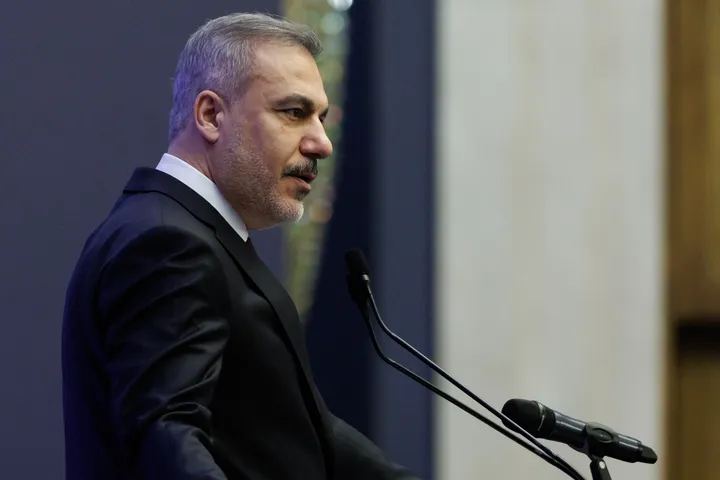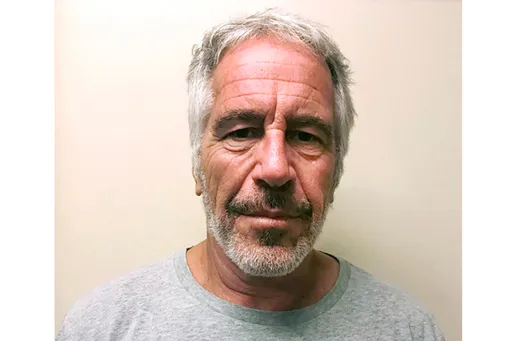The United States moved its troops in northern Syria "out of the path of the potential Turkish incursion to ensure their safety," a spokesman for the US Defense Department said on Tuesday, with Turkey saying it's ready for a possible military operation east of the Euphrates River to establish a peace corridor.
"Unfortunately, Turkey has chosen to act unilaterally. As a result, we have moved the US forces in northern Syria out of the path of potential Turkish incursion to ensure their safety," Chief Pentagon spokesman Jonathan Hoffman said in a statement.
He, however, said the US has made no changes "to our force presence in Syria at this time."
Hoffman also said the US President Donald Trump consulted with Defense Secretary Mark Esper and Chairman of the Joint Chiefs of Staff Mark Milley "over the last several days" about a possible Turkish strike in Syria.
"The Department's position has been and remains that establishing a safe zone in northern Syria is the best path forward to maintaining stability," the statement said.
Earlier on Tuesday, Turkey said the establishment of a safe zone or peace corridor "is essential for Syrians to have a safe life by contributing to the stability and peace of our region."
The defense ministry in a tweet further said: "Turkish security forces will never tolerate the creation of a terror corridor at our borders. All preparations for the operation have been completed."
Trump hails ties with Turkey
Also on Tuesday, Trump defended his decision to pull US troops in Syria ahead of a "long-planned" Turkish operation, even as Republican critics and others opposed his idea.
Trump stressed that Washington has an important relationship with NATO member and trading partner Turkey.
"So many people conveniently forget that Turkey is a big trading partner of the United States, in fact, they make the structural steel frame for our F-35 fighter jet," Trump said in a tweet, adding, he will host his Turkish counterpart Recep Tayyip Erdogan in Washington on November 13.
"They have also been good to deal with, helping me to save many lives at Idlib province, and returning, in very good health, at my request, Pastor Brunson, who had many years of a long prison term remaining," Trump said.
Trump did not say he opposed any operation by Turkey against the SDF/ YPG militants but repeated his warning that "unforced or unnecessary fighting" would prompt "devastating" consequences for the country's economy.
Senators-only briefing
Meanwhile,Democratic Senator Chris Coons and Republican Senator Lindsey Graham on Tuesday demanded a senators-only briefing immediately on Syria from President Trump's administration.
In a letter addressed to Senate Majority Leader Mitch McConnell and Senate Democratic Leader Charles Schumer, the senators said Trump's decision to pull back troops will severely harm US strategic interests and reduce its influence in the region while strengthening Turkey, Russia, and Iran.
"We are concerned that this was an abrupt decision taken in the face of reported opposition from military and diplomatic advisers," said Coons and Graham.
US Senator Lindsey Graham Wednesday announced on Twitter of bipartisan opposition in Congress to Turkey's operation in Syria and said the Turkish government does "NOT have a green light to enter into northern Syria." He added that a military invasion would "destroy what is left of a fragile relationship" between the two countries.
While the US sends mixed messages on troop withdrawal, Turkey continued on Tuesday preparations for its military campaign. TRT World correspondent Hasan Abdullah has more from Sanliurfa, near Turkey-Syria border.
Pressure from lawmakers
Trump has been facing mounting pressure in Washington after the White House late on Sunday ruled out any US involvement in the operation.
In a rare show of bipartisanship, top lawmakers in the US House of Representatives and Senate condemned Trump's decision.
In the face of significant pushback, the president said: "if Turkey does anything that I, in my great and unmatched wisdom, consider to be off-limits, I will totally destroy and obliterate the economy of Turkey."
We speak with retired US Brigadier General Mark Kimmit, who says PKK militants will likely wait for Turkish soldiers to settle in northern Syria before launching attacks on Turkish forces.
US troop movement
Earlier, Trump said he understood the criticism from fellow GOP leaders but disagreed. He said he could also name supporters, but he didn't.
In his remarks, the US president said there were just 50 troops in the area where Ankara was planning to carry out the operation and did not want them to get hurt.
Following the White House announcement, among the first to move were about 30 US troops from two outposts situated in the immediate area of the planned Turkish operation.
It's unclear whether others among the roughly 1,000 US forces in northeastern Syria would be moved, but officials said there was no plan for any to leave Syria entirely.
Turkish operations in Syria
For Ankara, this is not the first operation of its kind.
Since 2016, Turkey’s Euphrates Shield and Olive Branch operations in northwestern Syria have liberated the region from YPG and Daesh terrorists, making it possible for nearly 400,000 Syrians who fled the violence to resettle in western Syria.
The US allied with the PYD/YPG-dominated SDF militia in a battle against Daesh terror group in Syria.
The YPG is the Syrian offshoot of the PKK terrorist organisation. In its 30-year terror campaign against the Turkish state more than 40,000 people, including children, have been killed.
Turkey, the US and the EU recognise the PKK as a terrorist organisation.
"I think there is a lot of pressure on Turkey. They have been fighting with the PKK for many years," said Trump.
The YPG question
US involvement in Syria has been fraught with peril since it started in 2014 with the insertion of small numbers of special operations forces to recruit, train, arm and advise local fighters to combat Daesh.
In the months to come after, Washington partnered with the YPG-led SDF in its fight against Daesh.
The partnership was one of the issues that strained ties between the two NATO member states, with Ankara arguing that supporting a terror group to fight another terror group makes no sense. Trump entered the White House in 2017 intent on getting out of Syria.
The US president, in late afternoon remarks to reporters, said he is trying to fulfil a campaign pledge to return US troops home.
"But I have told Turkey that if they do anything outside of what we would think is humane ... they could suffer the wrath of an extremely decimated economy," he added.
Trump defended his latest decision, acknowledging in tweets that "the Kurds fought with us" but adding that they "were paid massive amounts of money and equipment to do so."
"I held off this fight for almost 3 years, but it is time for us to get out of these ridiculous Endless Wars, many of them tribal, and bring our soldiers home," he wrote.
In his later remarks, Trump asserted that American troops in Syria are not performing useful work. They are, he said, "not fighting." They are "just there," he said.
























